Post-Dobbs: SCOTUS in Our Backyard
Embedded in the Dobbs v, Jackson Women’s Health Organization decision, known widely as the overturn of Roe v. Wade, was Justice Clarence Thomas’ concurrence spelling out his terrifying outlook for imminent SCOTUS rulings:
“In future cases, we should reconsider all of this Court’s substantive due process precedents, including Griswold, Lawrence, and Obergefell. Because any substantive due process decision is ‘demonstrably erroneous,’ we have a duty to ‘correct the error’ established in those precedents.”
With this, Thomas is arguing that rights and protections that are not explicitly enumerated, or explicitly mapped out within the Constitution, are “made up” or “erroneously” named and protected. Justice Thomas makes alarmingly clear his belief that the right to choose if/when one wants to have consensual sex with partners of their choosing (Lawrence v. Texas), who one marries (Obergefell v. Hodges), and if/when one wants to get pregnant and/or treat a widerange of medical conditions through contraception (Griswold v. Connecticut) were decided erroneously.
This is a terrifying assertion from a representative of the court that holds ultimate jurisdiction over all federal and many state court cases. As we witness the impacts of the Dobbs decision, the ACLU stands firm in our belief that the expansion of civil rights and protections is never a decision made in error.
On its own, the Dobbs decision is a lifethreatening and death-dealing ruling that will contribute to lesser health outcomes, especially in low-income and otherwise marginalized communities. Unequivocally, abortion bans are racist— they have a direct, and measurable
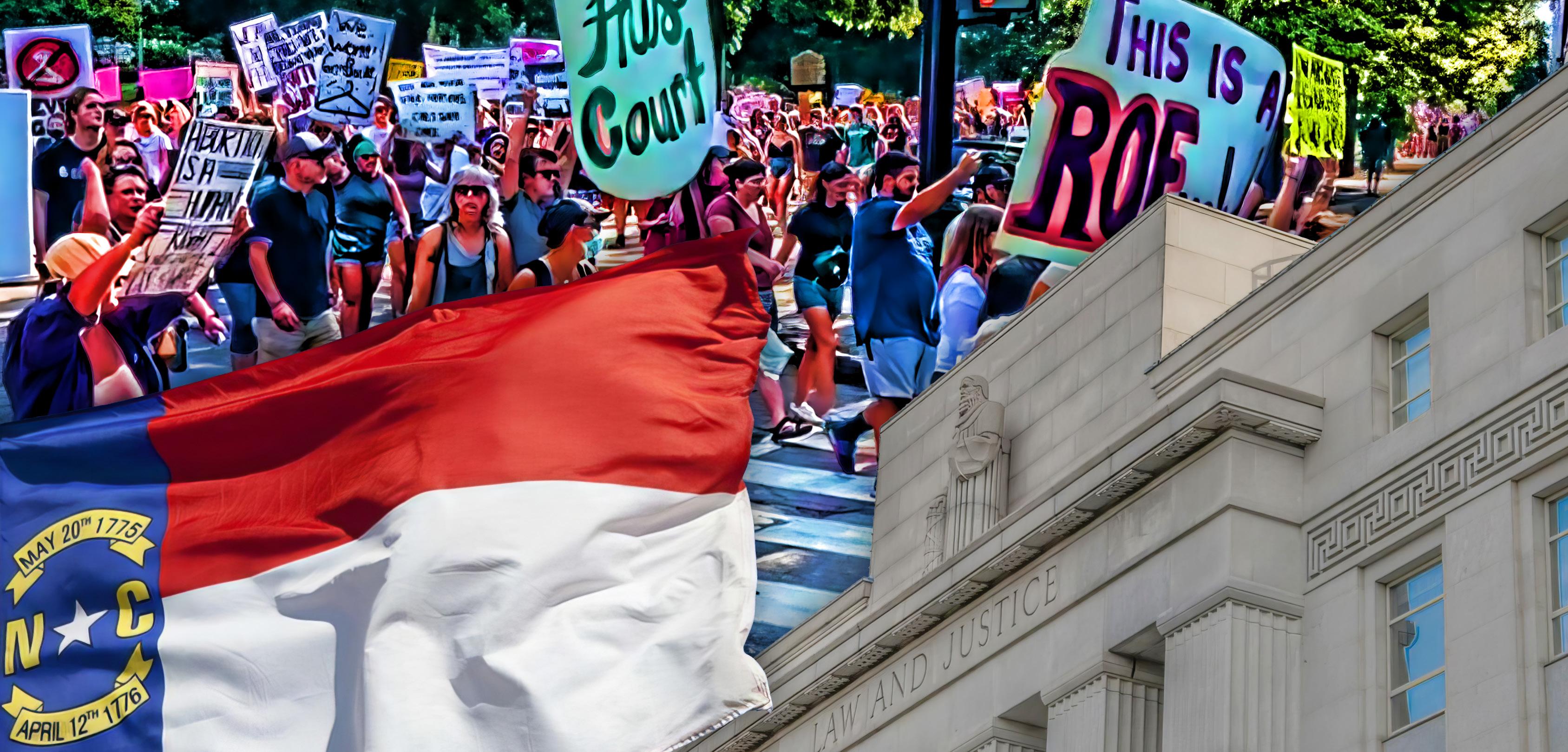
Message from the Executive Director Page 2 Toward an Inclusive Democracy Page 3 Abortion in NC Pages 4–5 The Legislative Session Page 7 Brandon Hill and Death Disqualification Page 7 continued on page 7 Liberty ACLU OF NORTH CAROLINA NEWSLETTER FALL/WINTER 2022 IN THIS ISSUE
THE
WE
PEOPLE DARE TO CREATE A MORE PERFECT UNION
STAFF
Chantal Stevens, Executive Director
Atisha Burnett, Senior Manager for People and Culture
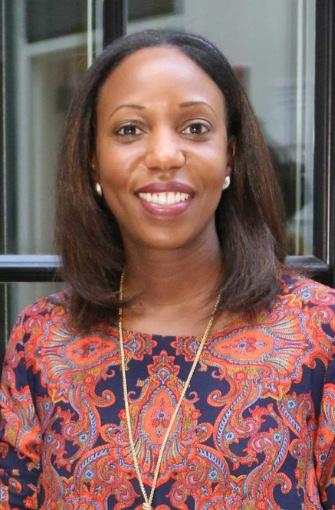
Daniel Bowes, Director of Policy and Advocacy
Kristie Puckett-Williams, Deputy Director for Engagement and Mobilization
Elizabeth Barber, Policy Counsel
Ann Webb, Senior Policy Counsel
Keisha Williams, Director of Communications
Olivia Neal, Communication Strategist
Tatiana McInnis, Staff Writer
Kristi Graunke, Legal Director
Daniel Siegel, Deputy Legal Director
Jaclyn Maffetore, Staff Attorney
Michele Delgado, Staff Attorney
Muneeba Talukder, Staff Attorney
Lauren Robbins, Paralegal
Alicia Gathers, Paralegal
Sam Davis, Legal Fellow
Anna Koltchagova, Chief Financial Officer
Murray Bognovitz, Manager of Operations and IT
Liz Musselman, Chief Development Officer
Alicia Lee, Development Associate
Mikhaela Payden-Travers, Major Gifts Officer
Nicole Mance-Foster, Assistant to the ED & Board Administrator
ACLU-NC & ACLU-NCLF BOARDS OF DIRECTORS
Jefferson Parker, President
Jenna Beckham, Vice President (Foundation)
Evangeline Weiss, Vice President (Union)
Jillian Brevorka, Secretary (Foundation)
Wyatt Orsbon, Secretary (Union)
Gregroy McLeod, Treasurer
Lela Ali, Equity Chair
Scott Taylor, Legal Committee Chair
Shannon Swimmer, Western NC Chapter Representative (Union)
Anne Gordon, National ACLU Board Representative (Union)
Seth Cohen, General Counsel
Anne-Maria Makhulu
Carolyn Jefferson-Jenkins
Clarissa Goodlett
Craig Merrill
Joaquin Carcaño
Linda Cotton
Jabrina Robinson
Andrea Hudson
Stephen Sills
Jaelyn Miller (Foundation)
Tucker Idol (Foundation)
Kayla Coleman (Foundation)
Abraham Rubert-Schewel
Felicia Arriaga
Unless otherwise noted, board members listed above serve on both the ACLU of North Carolina and the ACLU of North Carolina Legal Foundation boards.

From the Executive Director
As we put this newsletter together for dis tribution, we reflected on how the past few months have been a comprehensive rep resentation of the high stakes of our issue areas. We’ve been stretched to capacity, and if you’ve been following along, you’re probably joining me as I sigh exhaustedly and get ready for the next round.
The fight for a more perfect union is happening on a variety of fronts. The ACLU works toward a more perfect union by expanding civil rights and defending those vulnerable to state-sanctioned violence and neglect, especially as it relates to the criminal legal system, LGBTQIA+ rights, racial justice, voting rights, immigrants’ rights, and reproductive justice. In this newsletter, you’ll read about how the Dobbs decision has shaped our strategy surrounding abortion access as we anticipate the follow through of Justice Clarence Thomas’ ominous threats targeting LGBTQIA+ rights and access to contraception.
We’ll reflect on injustice in our jails and at the polls, whether through the brutality of prison experiences for trans women, or through the disenfranchisement of formerly incarcerated people within a legacy of anti-Black voter suppression. You’ll also read about death disqualification, and the mechanisms that prohibit representative and fair juries and continue to disproportionately subject Black people to the death penalty.
As you read this, we have anticipated the need to shift and adapt our strategies for our new terrain in the wake of the mid-term elections. The state of play may shift, but we remain steadfastly committed to you, our communities, and expanding rights and protections that enhance our lives. It is overwhelming and exhausting to sustain the fight—but it is a necessary fight for our lives. As I anticipate continuing my commitment to the work, I recite Assata Shakur’s mantra:
“It is our duty to fight for our freedom. It is our duty to win. We must love each other and support each other.”
May these words inspire, motivate, and encourage you in the darkest hours as you join us to continue the fight. We’re glad you’re with us.
In solidarity, Executive Director
ACLU of North Carolina
ISSUE
Liberty VOLUME 56
1 FALL/WINTER 2022
2 Liberty
Toward an Inclusive Democracy: Unlock Our Vote
Voting is arguably the most direct and important way we can participate in democracy. It should come as no surprise, then, that efforts to restrict, control, and disempower have historically targeted the franchise. Whether by prohibiting voting altogether, creating obstacles to voting through poll taxes, tests, and grandfather clauses, or the use of targeted violence to dissuade participation at the polls, there is a long legacy of voter suppression that especially keeps Black and Brown people from casting their votes.
We at the ACLU view the existence of felony disenfranchisement laws as a continuation of suppressive efforts that target Black and Brown people. As minoritized people are more likely to be the targets of our criminal justice system, ongoing disenfranchisement after incarceration disproportionately excludes people of color from the democratic process.
In our continued fight to ensure equitable, inclusive, and representative elections, we worked in coalition with directly impacted leaders, Forward Justice, Emancipate NC, Community Success Initiative, and other civil rights groups to secure the vote for over 56,000 North Carolinians who were formerly incarcerated. The result of a 2019 suit that alleged that the felony disenfranchisement law violates provisions of North Carolina’s constitution, this decision marks the largest expansion of voting rights since the 1960’s Voting Rights Act. The decision went into effect on July 27th, 2022, and as we are writing this, we are busy
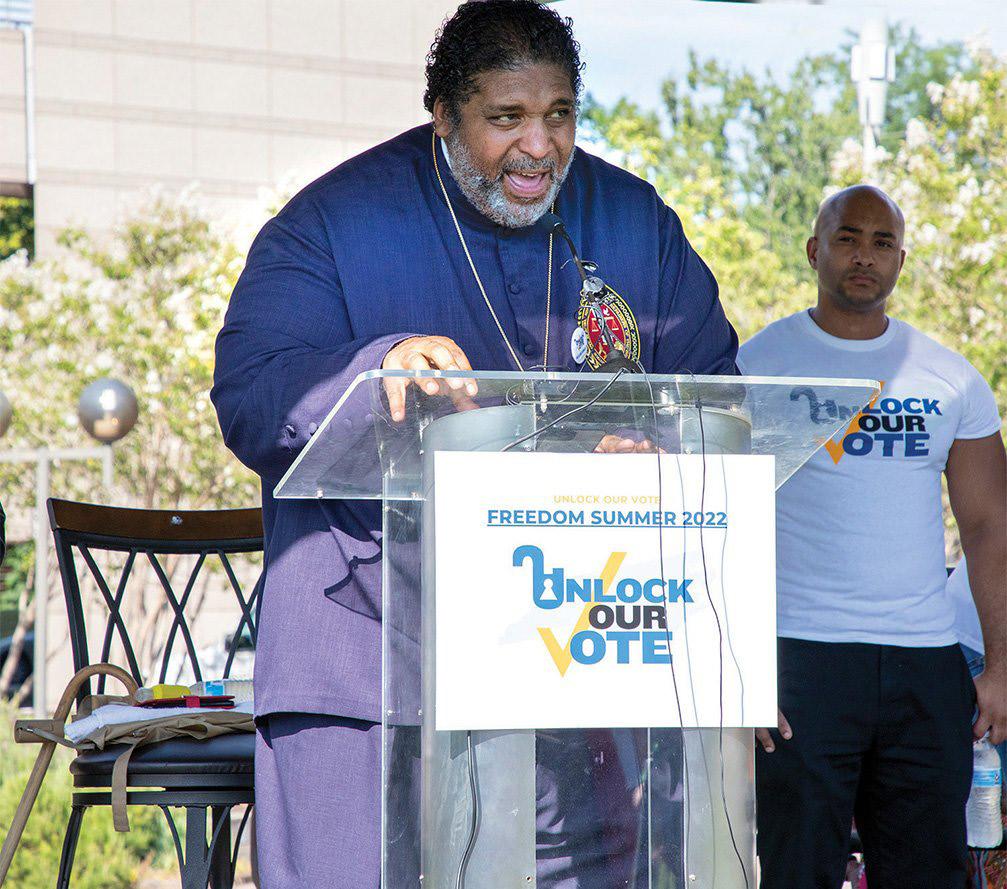
Kanautica Zayre-Brown
The ACLU of NC, in partnership with ACLU National and Patterson Harkavy LLP, has continued to advocate for Kanautica Zayre-Brown, a transgender woman currently incarcerated at Anson Correctional Institution. In a lawsuit first filed in April 2022, the North Carolina Department of Public Safety (DPS) was charged with denying essential
trying to ensure that folks are registered in advance of the forthcoming election.
By the time you read this, we will be in the initial stages of strategizing our continued fight for civil liberties in the wake of the midterm elections. In this process, we hold the right to vote, especially for Black and Brown folks as integral to the creation of a more perfect union, and you should, too. Stay with us as we continue to unlock and protect the vote.
gender-affirming health care to Mrs. Zayre-Brown, who has been diagnosed with gender dysphoria.
In August, our attorneys filed a motion for a preliminary injunction. If granted, the motion would have required DPS to provide Mrs. ZayreBrown the gender-affirming care she has been denied while the case proceeds; gender-affirming care is urgent for Mrs. Zayre-Brown and for
all trans and gender nonconforming people. Unfortunately, the judge did not grant the motion, forcing Mrs. Zayre-Brown to endure further delays to her care. The judge did, however, reject DPS’ attempts to have Mrs. Zayre-Brown’s case dismissed, thus allowing the legal team to press forward with proving Mrs. ZayreBrown’s claims.
The ACLU of NC will continue to push for Mrs. Zayre-Brown to receive the care she is constitutionally owed.
Fall/Winter 2022 3
Rev. Dr. William Barber II speaking at the Unlock Our Vote Freedom Summer Tour
Abortion in NC
There is strength in community. We have a responsibility to our fellow North Carolinians to fight for our abortion rights. Together, we can take steps to protect access to abortion for all.
If you or someone you know is a patient seeking an abortion and you have questions, or want to know about available resources, The National Abortion Federation national hotline can help: 1-800-772-9100
As of August 2022, North Carolina permits abortions to be performed up to 20 weeks. After 20 weeks, abortions are only allowed in very narrow circumstances. How far along you are in your pregnancy is measured from the date of your last period.
If you need assistance obtaining an abortion as a minor, TextAbby is a free text line that can answer your questions and help you obtain a judicial waiver if you need one. The number to TextAbby is (844) 997-2229.
North Carolina has a 72-hour waiting period. You are required to receive state-directed counseling that includes information to discourage you from having an abortion and then wait 72 hours before you can go in for your appointment. You can do this over the phone.
North Carolina has 14 abortion providers in 9 counties. You can find the closest one to you using AbortionFinder.org.
If you need help paying for your abortion, you can contact the Carolina Abortion Fund. To make a funding request, you can call (855) 518-4603.
4 Liberty
How to help protect abortion access in North Carolina
Donate to abortion funds and providers. The Carolina Abortion Fund provides financial support to patients in North and South Carolina who need help paying for their abortion services. The full digital guide has a list of these clinics.
Vote for pro-choice candidates. Voting for pro-choice candidates on the state and local level is critical. While the 2022 election is over, future elections will be just as important in determining our collective fate.
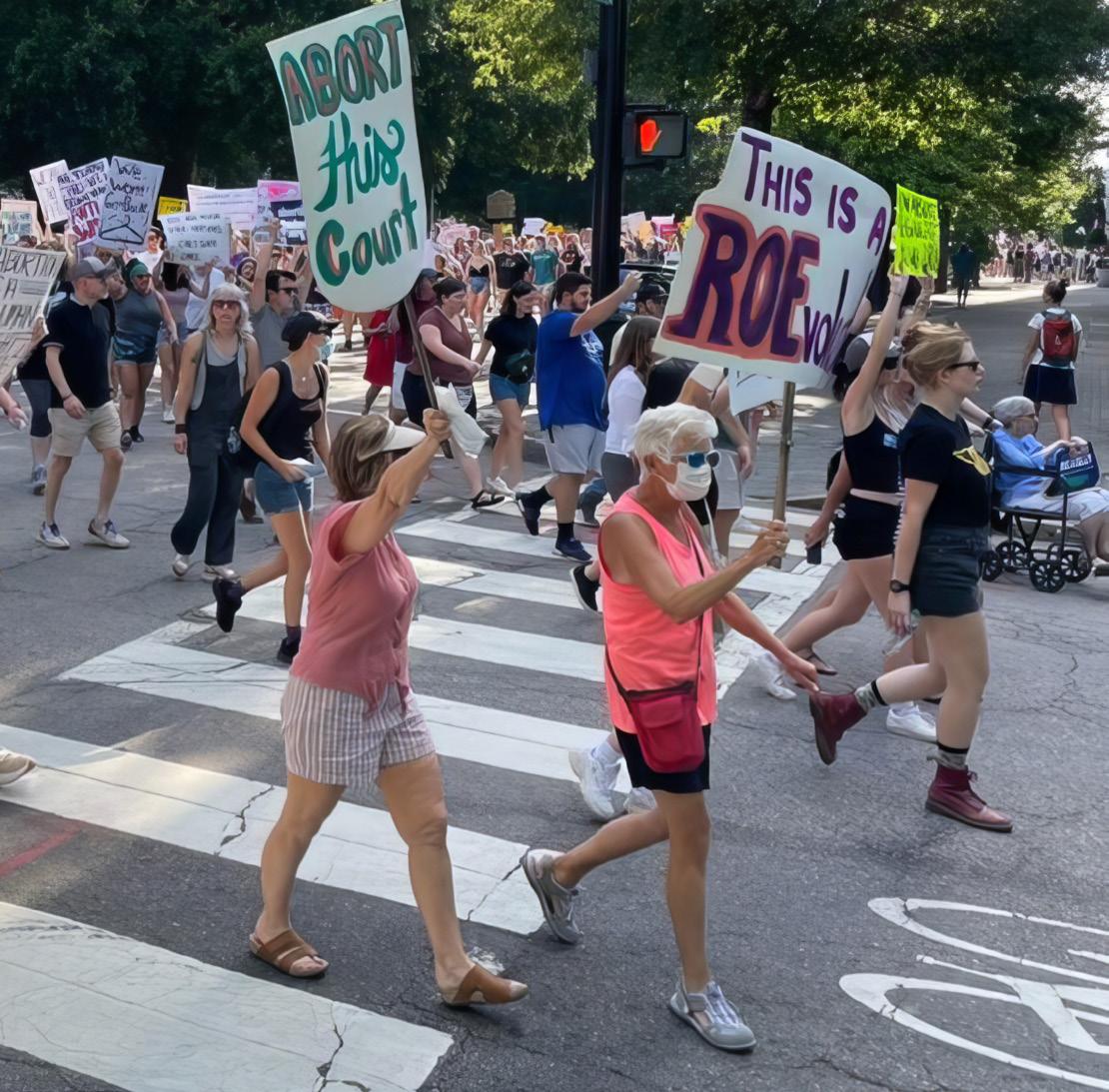
In the Courts
Moore v. Harper
On December 7th, the U.S. Supreme Court heard Moore v. Harper, a North Carolina partisan gerrymandering case. SCOTUS will ostensibly decide whether the North Carolina Supreme Court can strike down the legislature’s illegally gerrymandered congressional map. This map distorts the will of voters and violates their right to a free and fair election under the North Carolina Constitution. If the U.S. Supreme Court sides with gerrymandering lawmakers, governors and state courts would be deprived of their power to intervene when legislatures pass unconstitutional maps and other election laws. That decision would have devastating impacts on our democracy, giving state legislatures unchecked power and the final say over whose vote counts in future elections. The ACLU of NC filed a brief to inform the Court of what is at stake in this decision—follow us on
social for more developments on the SCOTUS deliberations.
FLOC v Stein
Farmworkers play a vital role in North Carolina’s multibillion dollar agriculture industry, providing essential labor. Most are Latinx noncitizens; many are migrants working seasonally under temporary visas. They are paid some of the lowest wages in the state too often face dangerous working conditions, substandard housing, and abuse and exploitation by their employers.
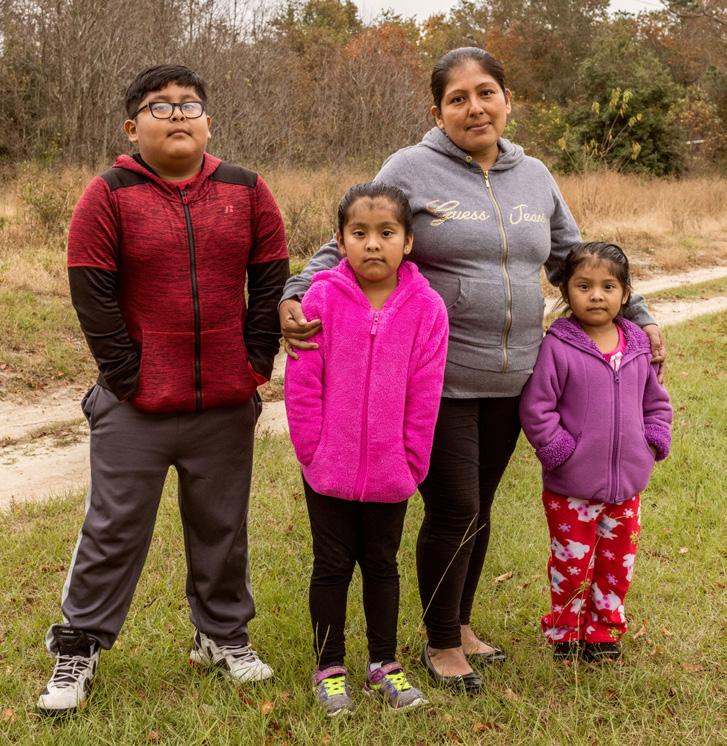
For years, the Farm Labor Organizing Committee (FLOC) has worked tirelessly to advocate for the rights of these workers. In 2017, we filed a lawsuit to block the implementation of a state law that would have stripped farmworkers and their union of their rights to bargain for voluntary union recognition in settling legal claims, as well as
A farmworker with their family.
farmworkers’ rights to choose whether to have union dues deducted from their paychecks—rights enjoyed by every other private-sector worker in NC.
In September, a federal appeals court heard oral arguments for this case. As the case progresses, we maintain our commitment to workers’ and immigrants’ rights on all fronts.
Fall/Winter 2022 5
The Legislative Session
As election season comes to a close and we contend with the outcomes, we turn our attention to the 2023–2024 legislative session, which will begin in January. This year, the ACLU of NC faced a tumultuous session, with both significant wins and painful losses. From the strategies legislators used to attempt to curtail civil liberties, we can make some predictions for legislative fights we may see in 2023.
First and foremost, anti-abortion legislators have promised to attempt to further restrict abortion access. Reproductive rights were a major oppositional front in the 2021–2022 session. Lawmakers attempted to push through multiple anti-abortion bills. One of them, HB 453, passed in both the House and the Senate, but Governor Cooper vetoed. Thankfully, anti-abortion lawmakers did not have enough votes to override his veto.
Regardless of election outcomes, we can be sure they will try again in 2023. In a July interview with the News & Observer, Senate leader Phil Berger said that he remains “committed to protecting the unborn and upholding the sanctity of life.” In the same article, House speaker Tim Moore said that “his personal stance is that when there is a heartbeat, that’s a child.” Based on these statements, we can assume lawmakers will push for significant further restrictions on abortion.
We may also see a renewed push for anti-LGBTQIA legislation in 2023. States across the country have seen an upswing in these types of bills over the last several years, including restricting trans students’ participation in sports, limiting access to gender-affirming health care, and targeting LGBTQIA students in education. We saw two of these bills in 2021 here in NC. While neither became law, legislators used this opportunity to stir up homophobic and transphobic rhetoric. We may see further attempts to target LGBTQIA youth in 2023.
With the rise of discussions around censorship and school curricula, we expect to see another push for legislation restricting classroom subjects and targeting critical race theory. In 2022, Governor Cooper vetoed a bill that would have limited educators’ ability to discuss topics related to racism, sexism, white supremacy, diversity, and equity with their students. Since it received such support in the legislature, we expect to see more of this conversation in the spring.
The outcome of the November election will greatly impact our expectations for the upcoming legislative session. You can scan the QR code (right) to get up-to-date information on the election results.
Brandon Hill and Death Disqualification in North Carolina
Every person accused of a crime has the right to be judged by a jury of their peers. But if someone is facing the death penalty in North Carolina, that is not the case.
Prosecutors can use a jury selection procedure known as “death disqualification” to ensure that only jurors who believe in the death penalty serve on capital juries. As a result, Black jurors – especially Black women – and people of faith who object to the death penalty are
disproportionately excluded from capital juries. Capital juries are more white, more male and more likely to convict and impose death.
In August, the ACLU filed a motion on behalf of Brandon Hill, who faces the death penalty for capital charges in Wake County, to stop the use of death disqualification in his case. The motion argues that because death disqualification impermissibly excludes jurors based on race, gender,
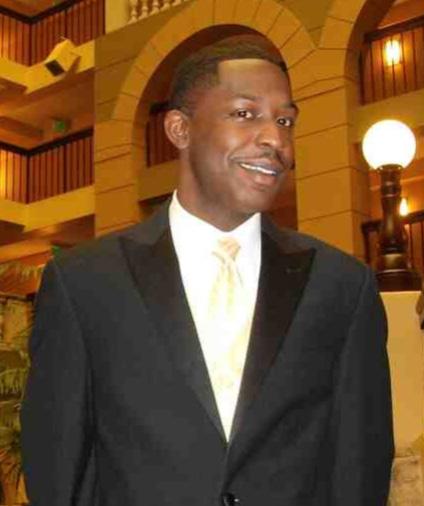
and religion, it violates Mr. Hill’s rights under the U.S. and North Carolina Constitutions.
The motion relies on a new study of 10 recent capital trials in Wake County by Catherine M. Grosso and Barbara O’Brien, both law professors at Michigan State University College of Law. The study, based on almost four decades of research, shows that death disqualification excluded Black potential jurors at more than twice the rate of white jurors, and Black women at significantly higher rates.
“The jury is meant to be the voice of the community and to decide the issues
6 Liberty
Brandon Hill
without prejudice,” said Brian Stull, senior staff attorney for the ACLU’s Capital Punishment Project and one of the attorneys on Brandon Hill’s case. “North Carolina has a shameful history of all-white juries condemning Black people, often falsely accused of crimes, to death. We call on the state to stop using this dangerous and discriminatory procedure and to stop exercising peremptory strikes by race.”
The death penalty has a racist history that lives on in prosecutors’ use of death disqualification and Black communities’ opposition to the death penalty. More
SCOTUS in Our Backyard
continued from page 1
impact on communities of color who are disproportionately subjected to lesser-quality health care, lesser quality educational opportunities, lesser quality-employment opportunities. The list, unfortunately, goes on.
Let’s be clear—the threat to contraception and efforts to erode newly-acquired LGBTQIA rights will also have disproportionate impacts on marginalized communities of color. Likely spurred by Thomas and his statement’s implicit call to action, state legislatures have advanced bills that enforce rigid abortion restrictions and target trans and nonbinary people. Here in North Carolina, HB 755 targeted the discussion of gender identity in the classroom.
As we have worked to highlight our communities through our advocacy, storytelling, and community engagement work since the ACLU’s inception—the threats to our civil liberties are intimately connected. The ongoing attacks on bodily autonomy,
than half the people on the North Carolina death row are Black, despite Black people representing only 23% of the overall state population.
“The administration of the modern death penalty in North Carolina draws upon a legacy of racial discrimination, violence, and terror that can be traced across nearly four centuries of history within the territory—from the colonial period to the Civil War, to the period of Black Codes and Jim Crow, all the way through present day,” reads a report on the racist history of the death penalty by Seth Kotch, the Director of the Southern
Oral History Program and an Associate Professor of American Studies at UNC Chapel Hill. “North Carolina’s capital punishment system is so tainted by discrimination against Black people and women, that their skepticism towards the death penalty and their ability to meaningfully contribute to a process that decides whether someone should live or die is warranted.”
The ACLU will continue to fight for Brandon Hill and in future cases to prevent the practice of death disqualification from furthering the racist history of capital punishment.
attempts to censor classroom discussion, removal of books from library shelves, and voter suppression exemplify the gradual chipping at the pillars of democracy through the unethical squashing of dissent.
Since our last update, we have been bracing for the erosion of our civil liberties. In the face of incalculable onslaughts against marginalized communities, we have contributed to efforts to restore voting rights to formerly incarcerated people. Through our tireless legislative efforts, we are currently working to register those, primarily Black and Brown people who are disproportionately targeted by the criminal legal system—they now have the power to vote for our shared future.
We have worked to create and disseminate accessible resources for reproductive care in a post-Roe world—outlining the ramifications of the Dobbs decision in North Carolina and how folks can get the care they need. We have continued to advocate for fair state court procedures so that our courts and juries are unbiased and positioned in defense of vulnerable communities—unfortunately, we have all seen the consequences of unfair court decisions and have a keen
understanding of the need for our courts to be accountable to the people. It has undoubtedly been a busy time for us. Each of the articles encapsulates a commitment to working toward a more perfect union by allocating resources and people power to causes across our issue areas. We have worked to defend the rights, dignity, and needs of migrant workers, trans and nonbinary children, formerly incarcerated people of color, and more because doing so upholds our commitment to democracy, liberty, and justice for all.
Justice Thomas’s threat—and we should rightfully perceive this as a threat—targets critical protections, including, of course, the right to an abortion, but also the right to access contraception and the unrestricted right to marry. We view his words as a call to action to those who would do us harm—but we are listening, working, and poised to act to defend our democracy. Stay with us to learn how to protect the most vulnerable, and by extension, our communities writ large—our collective future depends on you.
Fall/Winter 2022 7
The ACLU of North Carolina uses an integrated advocacy approach to defend and advance civil rights and civil liberties in our state. Our team of litigation, lobbying, organizing, communications, and administrative professionals work across teams and with community partners to earn victories on some of today’s most vital issues. Learn more and support our work at acluofnc.org/donate.

Non-Profit Org. U.S. Postage
Permit
P.O. Box 28004
BUILDING THE WORLD WE WANT TO SEE Facebook.com/ACLUNC aclu_nc @ACLU_NC CONNECT WITH US ONLINE acluofnc.org
PAID Raleigh, NC
No. 2394
Raleigh, NC 27611







